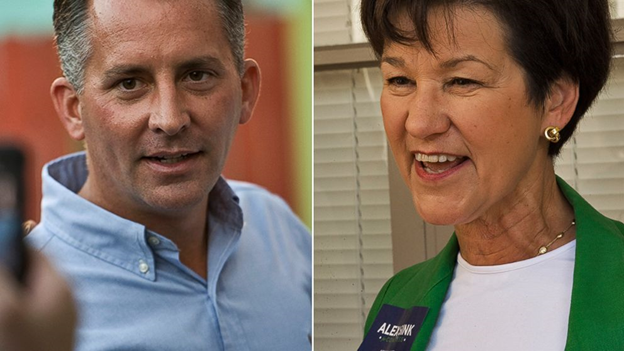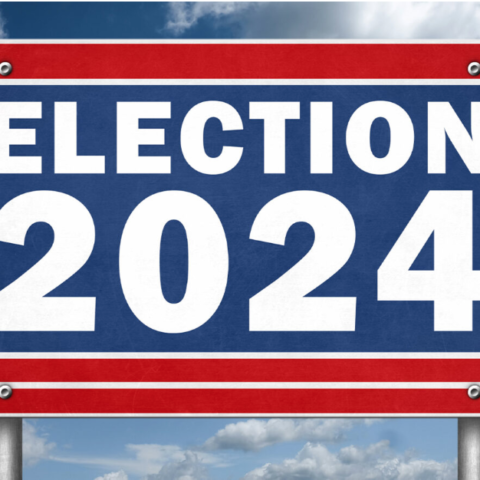By: Jon Wilson

Source: ABC News
If competitive special elections are accurate predictors of a party’s success in an upcoming midterm election cycle, Democrats should brace themselves for losses in November. On March 11, Republican David Jolly won the special election for Florida’s 13th Congressional District against Democrat Alex Sink following the death of long-time incumbent Bill Young. The election’s results mirrored the district’s slight Republican tilt, with Jolly almost edging out a 2 percent victory over Sink. Both parties are now asking if Florida’s election and special elections in general accurately prognosticate future results of on-cycle elections. Some state that Sink’s loss in Florida represents Democratic losses in this year’s House elections. However, regardless of what political pundits and media outlets claim, evidence suggests that special elections have little power to predict November election results.
Special elections typically occur out of the traditional November cycle usually due to vacancies following an incumbent’s death or early retirement. Because their dates fall outside the normal cycle, special elections often suffer from lower turnout than November elections. This factor can lead to surprising upsets that have much wider implications than the elections themselves. Republican Scott Brown’s victory over Democrat Martha Coakley in Massachusetts’s 2010 special Senate election race erased the Democratic Party’s filibuster-proof supermajority in the chamber. Some argued that Brown’s win represented a rejection of the Affordable Care Act, which the Senate had not yet passed, as Republicans were united in their opposition to the bill and easily filibustered it. But did Massachusetts voters reject Coakley due to their desire to stop the passage of the ACA or were other factors at play? The health care law was a national issue that surely factored into decisions made by some voters, but how many of them voted for Brown primarily to prevent the passage of the ACA? Furthermore, this singular example begs the question of how aware voters are of possible significant implications of special elections.
Many studies have explored how voters choose candidates. Most have determined that the average voter knows very little about candidates outside basic name recognition and information gathered from the media. In short, most voters rarely seek out information about candidates, instead casting votes based on limited knowledge of political positions and ignoring the wider implications of their votes. Studies in voting patterns suggest that voters have little incentive to spend copious amounts of time familiarizing themselves with candidates’ beliefs when most political decisions don’t affect the average person’s daily life.
Competitive special elections like Massachusetts’s Senate race and Florida-13’s House can be just as expensive. However, the fact that turnout is almost always lower in special elections demonstrates that voter awareness is usually collectively lower than during November elections. All of this evidence suggests that voters rarely realize the implications of their votes in special elections.
Analysts and the media often detect national tides favoring one party months before elections occur. Elections where one party greatly outperforms another are known as “wave elections.” Scientific polling and national moods signaled big losses for the Democratic Party in the last wave election year, 2010. For congressional races, the plethora of generic ballots collectively predict election results by asking voters which party they intend to vote for in November. In other words, the generic ballot can be an indicator of national tides favoring one party over another. By the summer of 2010, Republicans outperformed Democrats in the generic ballot by an average of more than 5 percent, showing that the Republican Party had a significant edge over the Democratic Party. Polling for individual races can also predict future election results with at least some accuracy.
While several factors can predict national election results, in most cases, the special elections that occur before November elections should not accurately predict national results. There are simply too many other factors involved to draw significant implications from individual races. Low voter turnout, candidate quality, political scandals, ideological differences between districts and the nation as a whole, and many other factors can all influence special elections to the point of rendering them nearly meaningless in the grand scheme of things. In addition, most special elections lack an incumbent, which is unlike the vast majority of House races in any given election year. Incumbents possess numerous advantages that challengers do not, leading to more than 90 percent of incumbents winning reelection. Races without incumbents, like most special elections, are generally more competitive. However, all of this is not to say that special elections should not be viewed as completely insignificant with regard to predicting national electoral results. A sizeable sequence of competitive special election wins for one party could possibly signal later big wins.
Special elections are strange races that don’t play by the normal rules of November on-cycle elections. Given the polarized and sensational political climate that exists today, one does not have to search long to find online news articles and television coverage reporting on the supposed great implications from competitive special elections. While some may try to establish significant connections between individual special elections and national tides, evidence and common sense show that special elections rarely accurately predict results of later November elections. Analysts should give more credence to scientific polling to predict elections with greater precision. Democrats should not be afraid of losing seats in the House due to their loss in the Florida special election. They should instead be afraid of losing seats due to their current mediocre performance in the national generic ballot and the historical phenomenon of the President’s party losing seats in midterm elections.

